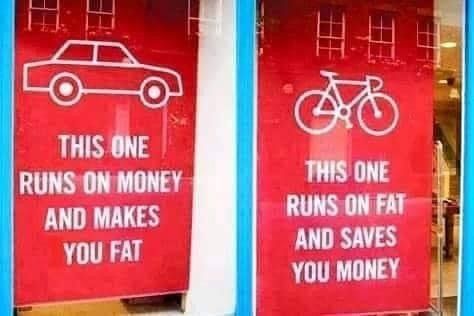Solar power

Solar power – it sounds great having panels sitting quietly on your roof generating electricity, doesn’t it? You don’t have to do anything other than maybe clean them once in a while (I figure rain mostly does that for us).
Having written a blog where I pointed out that installing solar power is not the answer to the world’s environmental crises , I thought I would follow up on what, if anything might be a good reason to install solar power. I must have thought there was a good reason because we have installed PV!
Top reasons to install solar power are:
- Save money
- Reduce environmental impact
- Energy independence.
- Tech-geekdom
SAVING MONEY . Do you save money through installing solar power? If you believe a lot of the sales hype you will think so. We designed our house orientation to maximise solar gain, we get lots of long sunny days, and we designed the appliance set-up to maximise use of power during the day. And we are home during the day using power. I don’t think there could be a much better set-up for solar. I have calculated the time it will take to pay off our first, 3kWh, solar installation through the energy it generates. We have saved around $1000 a year in power costs, which means it will take 14 years before the system pays for itself!
However, purchase and installation prices have dropped significantly over the six years since our first system was installed. We paid around 50% more this year for three times the power generation capacity. That’s looking better, we are down to 7-8 years for the system to pay for itself. And our power bill last month’s was -$100, which was quite satisfying – our first negative power bill ever! You don’t want to focus on sending power back to the grid, though. While we pay 26c per kWh we get paid 12c per kWh. I’m not complaining – we don’t provide the lines or any certainty of when power is available, or any promise that we will generate power. However, it means that if your focus is sending power to the grid you are back to taking around 15 years to pay the system off.
Summary : you are going to spend a lot more money on a PV system than you save for a reasonable period of time, if you believe our numbers done for our purpose-designed house and appliances. Many people will have houses oriented less well in locations with less sun, have less available roof and won’t be able to maximise daytime power use. If saving money is your primary goal, there might well be better things to do with your money, particularly if you aren’t planning on staying in your home long term (The average length of time people live in a house in New Zealand was calculated as 7.4 years in 2019 – those average people might save enough on power to pay off their solar just before they leave!).
REDUCING ENVIRONMENTAL IMPACT Over 80% of New Zealand’s electricity is generated using renewable sources, so replacing any of that power is not improving environmental outcomes. We also need an amount of generation that is not wind or solar powered because those sources cannot be guaranteed to produce power when it is required. Further, the limiting factor in our electricity system is peak load. Peak load determines the numbers of power plants and lines and thus capital cost and environmental impact. Peak load is how much power people use at peak periods – the maximum amount of power that the country must generate at any point in time. Peak loads occur before people go to work/school and when people get home at the end of the day. Unfortunately, those times are not peak solar power production times, so solar is not helping to reduce peak load.
Summary As I went through in my September blog , if you want to really reduce environmental impact, the best way is reduce consumption of anything/everything. There is no sort of consumption that has less environmental impact than no consumption! Or if you must buy something, spend your money on a bicycle which is a truly amazing machine in its efficiency of converting energy to distance travelled. I digress (blame it on how much I love bicycles).
ENERGY INDEPENDENCE Generating your own power sounds appealing. In the same way that countries are now looking at how much of their demand for goods and services they can satisfy domestically, people are wondering what proportion of their basic needs, such as energy, they can supply from their homes.
Energy independence is quite appealing to us in Gibbston because our power goes out regularly. If there’s a big wind or a big snow there is almost certain to be a power outage. We have scheduled outages averaging a day a month because Aurora delayed lines maintenance and now thousands of power poles need replacing. When you live rurally and work from home, it is really annoying to have your power go out for a whole day. We had semi-solved the problem by buying a generator. Our generator provides 5kWh of power, but is really noisy, we have to store (and rotate) fuel and it’s impossible to explain to other people staying at your house how to link it into the system without breaking something.
Solar power would seem to be a good option for power independence and it doesn’t require GHG-generating fossil fuels like a generator, right? Not quite so fast…first off, it isn’t sunny every day so there isn’t always power available. And solar power doesn’t work at night. So you need a battery for the times when power isn’t being generated. But we mostly want power for power cuts. Can we do without a battery? No.
To be energy independent if you are connected to the power grid you must have a battery. If the grid goes out in your location, your power generation is automatically shut down if you don’t have a battery. That’s done worldwide so people can safely work on power lines without you sending power up the line at them.
The downside of batteries are that they are really expensive and they use metals which are in limited supply and are not necessarily being mined with environmental rigour (particularly cobalt ). Furthermore, the rule of thumb is a battery costs about the same amount as a solar panel system that’s the right size to charge the battery. Ouch. Back to a 15 year timeframe to pay back the a PV system. And batteries are only projected to last 10-12 years! The only time batteries make economic sense is if you are so far away from the grid that it would cost you substantial sums of money to connect to it.
Summary , if you want PV for energy independence, you will pay through the nose for it. However, energy independence may be more important to you than the money.
TECH-GEEKDOM OK, I’ll admit it. I’m a scientist and I was just plain interested in seeing how much power we would generate and whether I could optimise our house set-up to use that power. I look at the little app on my phone quite regularly.
So, should we have got our PV systems and batteries? Maybe/maybe not if we are wanting to save money, definitely not if we are wanting to save the environment. Probably, if we are wanting a degree of energy independence. Definitely if you are a tech geek and like watching the numerics of your generation and consumption. Whether PV makes sense for anyone else is going to be their unique question to answer






